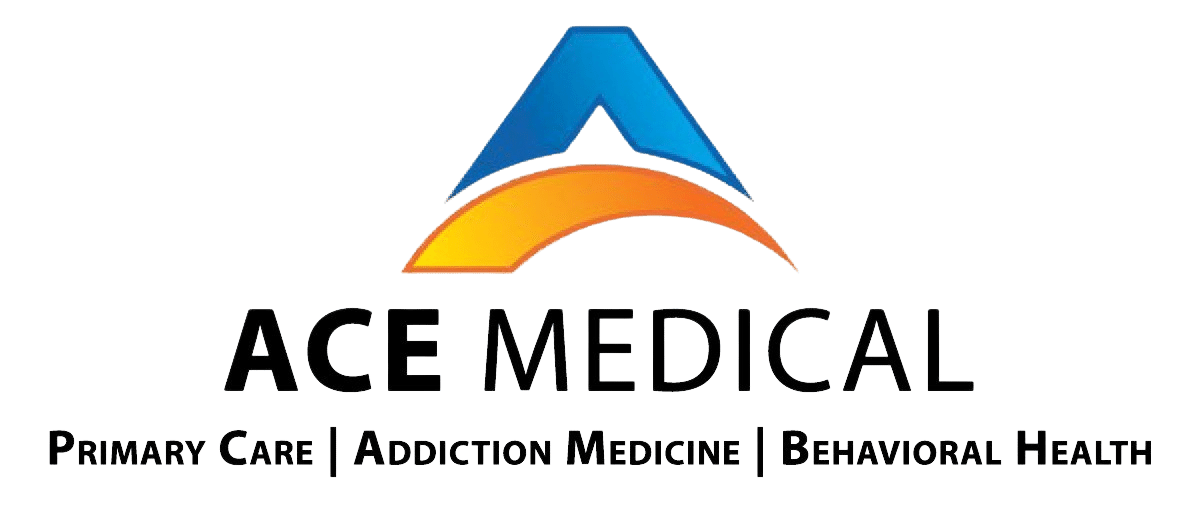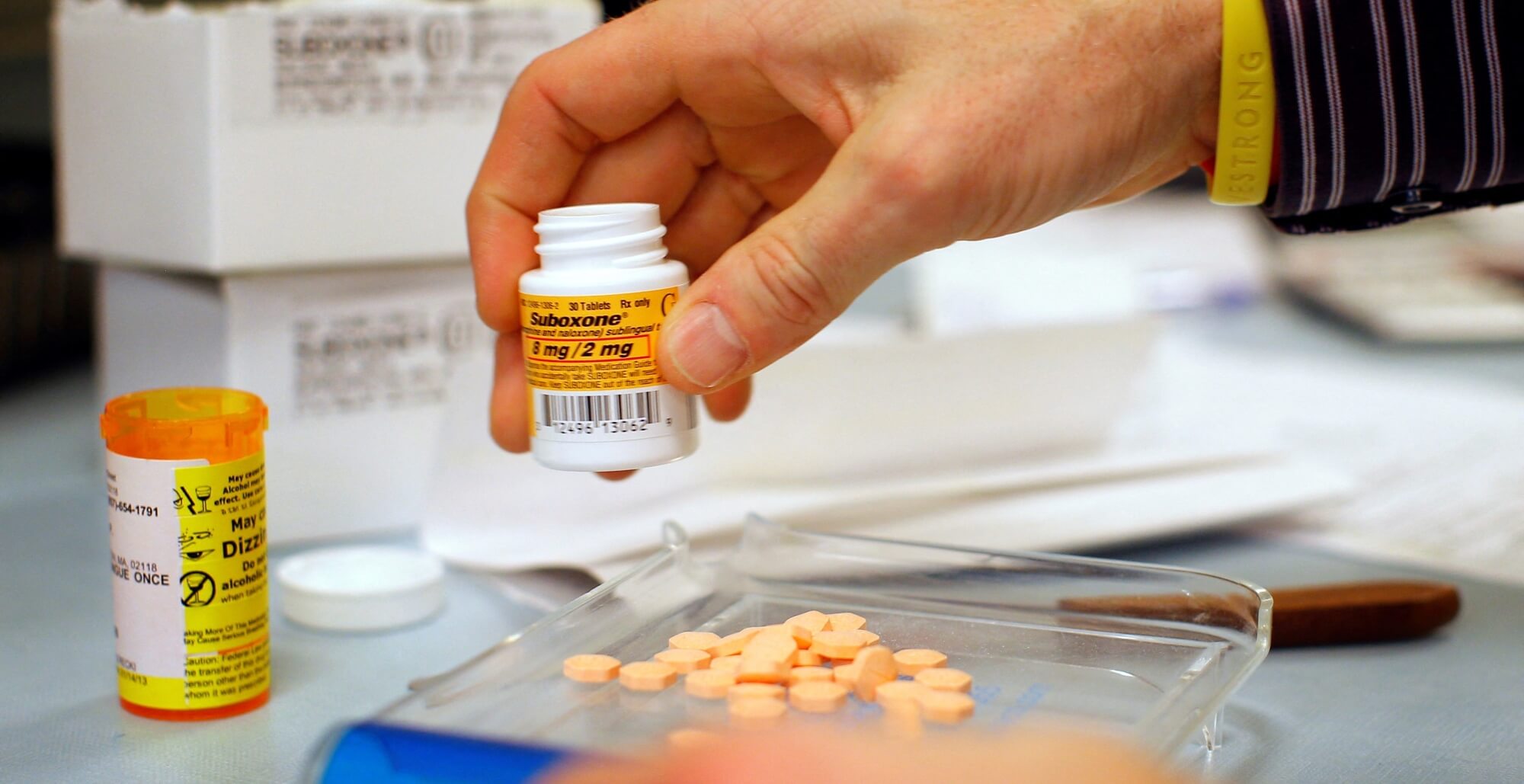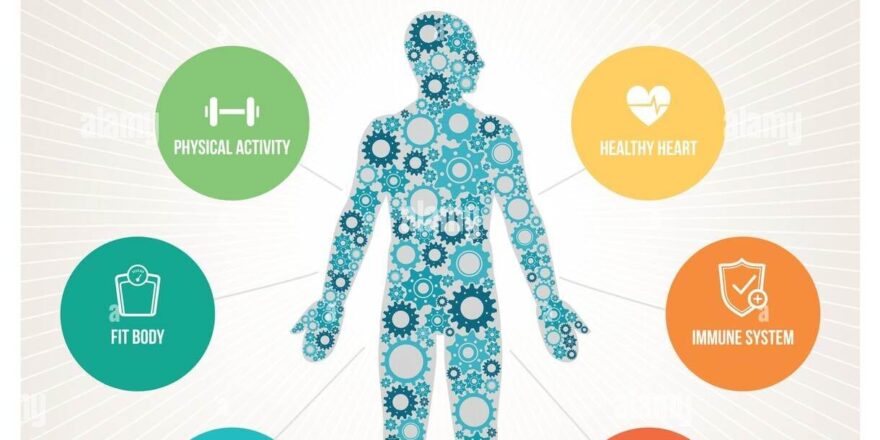Suboxone treatment provided by a caring, experienced medical team can help people in Jacksonville, FL overcome opioid addiction. At Ace Medical, we create customized treatment plans and support each patient like family. Learn how Suboxone works and why Ace Medical is a top provider of this life-changing treatment.
What is Suboxone?
Suboxone is a medication that contains two key ingredients – buprenorphine and naloxone. It is primarily used to treat dependence on opioids drugs like heroin, codeine, oxycodone, and morphine.
Buprenorphine acts as a partial opioid agonist, meaning it binds to the same receptors in the brain as opioids. However, it does not provide the same euphoric high or dangerous side effects. It helps reduce cravings and withdrawal symptoms.
The naloxone component is added to discourage misuse. If Suboxone is injected, the naloxone triggers withdrawal symptoms. When taken properly sublingually, the naloxone has no effect.
Used to Treat Opioid Addiction and Dependence
Suboxone allows people dependent on opioids to withdrawal safely, stabilize, and work towards sobriety. It greatly improves the chances of overcoming opioid addiction.
Acts as a Partial Opioid Agonist to Reduce Cravings and Withdrawal
Buprenorphine, one of the key components in Suboxone, is classified as a partial opioid agonist. This means it binds to the same mu-opioid receptors in the brain as other opioids like oxycodone and heroin. However, buprenorphine only partially activates these receptors rather than stimulating them completely like a full opioid agonist does.
When buprenorphine attaches to the opioid receptors, it does not create an intense “high” or euphoria like full agonists. It simply occupies the receptors enough to ease cravings and minimize withdrawal symptoms. At moderate doses, the effects reach a plateau despite increasing dosage. This “ceiling effect” lowers the risk of misuse, overdose, and severe side effects. It also curbs the urge to take more medication after developing tolerance.
Overall, buprenorphine provides pain relief and gentle, therapeutic opioid effects new patients without the same addictiveness, intoxication, and danger posed by full agonists. This partial opioid activity is what makes it effective for opioid addiction treatment. The relief of cravings and withdrawal allows patients to stabilize, begin recovery, and work towards sobriety.
The Naloxone Component Discourages Misuse
In addition to buprenorphine, Suboxone contains a second medication called naloxone. On its own, naloxone is used to rapidly reverse opioid overdose. It works by knocking other opioids off the brain’s receptors to restore normal respiration.
When combined with buprenorphine in Suboxone, naloxone serves as an abuse deterrent. If someone attempts to misuse Suboxone by injecting or snorting it, the naloxone triggers withdrawal symptoms like anxiety, sweating, vomiting, and pain. This quickly discourages any attempts to misuse Suboxone to get high.
However, when Suboxone is properly taken sublingually as prescribed, the naloxone is not active. This allows the buprenorphine to work safely and effectively, reducing cravings and withdrawal. The addition of naloxone is an important safeguard to keep Suboxone on track for successful recovery.
How Does Suboxone Work?
Now that we’ve looked at what Suboxone contains, how does it produce results? Here’s a quick overview:
Binds to Opioid Receptors in the Brain
Buprenorphine, the partial opioid agonist in Suboxone, works by binding to mu-opioid receptors in the brain. These receptors are located in areas like the brainstem that control pain, mood, and addiction.
When buprenorphine attaches to these receptors, it triggers a response that suppresses the painful symptoms of opioid withdrawal. This helps ease cravings and allows the patient to avoid relapse just to feel better.
Unlike full opioid agonists, buprenorphine does not fully activate the opioid receptors. It simply binds enough to provide therapeutic effects without the intense high that leads to addiction and abuse. This mechanism allows it to be used safely in medication-assisted addiction treatment.
Reduces Cravings and Withdrawal Symptoms
One of the key benefits of Suboxone treatment is relief from the intense cravings for opioids that make recovery so difficult. By binding to opioid receptors, the buprenorphine in Suboxone provides enough stimulation to ease withdrawal and reduce urges to use.
Suboxone also blocks full opioid agonists from attaching to receptors, preventing any euphoric effect if other opioids are taken. This eliminates the reward and reinforcement that drives addictive behaviors.
In addition, Suboxone stabilizes mood, allowing patients to focus on counseling, lifestyle changes, and long-term sobriety. The reduction of cravings and withdrawal makes it less likely that patients will relapse just to feel better in the short term. This gives them their best chance at defeating addiction for good.
Allows Brain Chemistry to Return to Normal
Long-term opioid abuse actually changes the chemical makeup and functioning of the brain. It alters the opioid receptor system and dopamine reward pathways. This makes addiction more severe and harder to overcome.
Suboxone treatment allows these disrupted systems to gradually return to pre-addiction conditions. The buprenorphine binds enough to ease withdrawal but without fully activating the opioid receptors. This helps restore normal neurochemistry. Dopamine levels stabilize rather than continue to spike and crash with opioid abuse.
Over weeks and months of Suboxone treatment accompanied by counseling and lifestyle changes, patients can achieve lasting balance. The brain is no longer dependent on opioids just to maintain everyday function. This restores mental and physical health on a foundational level.
Does Not Provide the Same High as Full Opioid Agonists
Because it’s a partial opioid agonist, Suboxone does not create a euphoric high like heroin or oxycodone. This makes it less addictive and safer for long-term recovery.
Suboxone Treatment Benefits
Suboxone treatment provides many benefits that improve quality of life and support long-term recovery.
Suppresses Withdrawal Symptoms
This allows patients to detox safely and comfortably. Dangerous withdrawal effects like nausea, anxiety, and chronic pain, are avoided.
Reduces Risk of Relapse
Cravings and withdrawal are two major reasons for opioid relapse. By relieving these symptoms, Suboxone helps patients resist relapse.
Improves Functionality and Well-being
Free from the chaos of addiction, many patients also can regain healthy routines, relationships, and livelihoods. Overall well-being dramatically improves.
Allows Focus on Counseling and Behavioral Changes
Medication provides initial stability so patients can work on behavioral changes through counseling and support groups.
What are the risks of opioids?
Opioid medications like oxycodone, hydrocodone, and morphine are highly addictive substances that pose serious health risks. Even when these drugs are taken exactly as prescribed by a doctor, opioids affect your body and brain in ways that can be harmful.
When opioids attach to receptors in the brain stem, they initiate a chain reaction that slows breathing, lowers blood pressure, and suppresses coughing. This puts users at risk of overdose and respiratory depression or arrest. Opioids also dull pain signals, which leads some to take more than prescribed after developing tolerance. Long-term opioid use changes brain chemistry, making addiction and physical dependence likely.
Beyond overdose, opioids can cause dizziness, nausea, constipation, confusion, depressed cognition, and more. Addiction ruins lives, destroying relationships and livelihoods. The US opioid epidemic causes tens of thousands of deaths each year. Understanding these grave risks is important when considering treatment options. The safest approach is working with medical providers to control pain and improve quality of life through other means when possible.
Success Rates of Suboxone Maintenance and Medically Assisted Detox
Suboxone maintenance treatment is highly effective at reducing opioid dependence, supporting long-term recovery, and improving patient survival. Studies show that continuous, monitored administration of Suboxone significantly lowers the risk of relapse compared to short-term detox programs.
One study found that 94% of patients who participated in Suboxone maintenance treatment over the course of 3 years avoided relapsing back into opioid abuse. They also experienced improved mental health, increased employment, stable housing, and better interpersonal relationships. Alternatively, the relapse rate for people who undergo medically assisted detox alone can be as high as 65 to 91% according to available research. This demonstrates how crucial ongoing treatment and support are after the initial Suboxone detox.
While Suboxone maintenance does not work for every patient, it provides most with their best chance at defeating opioid addiction, avoiding high-risk behaviors, and regaining a healthy, fulfilling life. The care team at Ace Medical will help determine the ideal treatment plan based on your unique needs and goals. Long-term recovery is possible with the right treatment protocol.
Suboxone Treatment at Ace Medical
The compassionate providers at Ace Medical are experts in Suboxone treatment. We take time to understand each patient’s unique needs and goals.
Caring, Non-Judgemental Environment
We believe in treating every patient with dignity and respect. Our team will make you feel welcomed without judgement.
Experienced Medical Providers
Our doctors and nurses have years of experience with Suboxone treatment. We know how to help patients through the process.
Customized Treatment Plans
We tailor treatment plans based on the patient’s opioid use history and health conditions. This provides the best path to recovery.
Ongoing Patient Support System
From your first appointment and beyond, we provide the coaching, education and resources to help you succeed.
Focus on Complete Recovery and Improved Quality of Life
We measure success by the patient regaining their mental health services, relationships, purpose, and joy. That is our ultimate goal.
We Get to Know Each Patient Personally and Treat Them Like Family
At Ace Medical, we as doctors take a genuine interest in each patient’s life and well-being. We support them through their disease and recovery as we would our own family.
Schedule a consultation today to learn how our Suboxone treatment program can help you or your loved one defeat opioid addiction for good. With the right treatment plan and support system, long-term recovery is possible. You deserve to live a fulfilling life free from addiction, and we can help make it happen.




